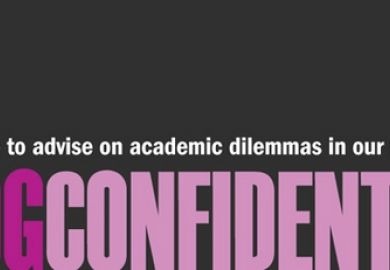An academic and a university manager have produced a joint paper contrasting the managerial philosophy of Taylorism with “academic (Laurie) Taylorism”.
Margaret Wilson is faculty manager of business and management at Regent’s University London. Philip Carr is professor of psychology (behavioural economics) at City University London. Their paper, “Managing ‘academic value’: the 360-degree perspective”, has just been published in Perspectives, Policy and Practice in Higher Education.
For many years, they write, they have had discussions, “sometimes heated by the fire of our different professional perspectives”, on how all the staff in a university can come together around the goal of “core academic value”.
Yet the two “sides” often seem to be at loggerheads.
As evidence of this, Ms Wilson and Professor Carr cite an article published in Times Higher Education, “Laurie Taylor on academics v administrators” (28 May 2015), in which the sociologist and author of The Poppletonian argues that “what used to be a mildly patronising relationship between dons and their administrative servants has now become more and more like a battle for control”.
A genuine “focus on the central mission of the university”, the paper suggests, “requires strategies to be put in place to align the perspectives, beliefs, attitudes and behaviours of all university staff”. It also requires people to be willing to face up to their own stereotypes.
Many academics, the authors write, see managers and administrators as “too inflexible as regards regulations, processes and procedures”, and as sometimes “encroaching on academic judgement”. They fail to take on board that the managerial team “know they must adhere to policy and procedures, often with external scrutiny…and often have little latitude in how they go about their daily activities”.
Managers and administrators in their turn, continue Ms Wilson and Professor Carr, may think that academics are “too focussed on their own pet projects”, “unavailable when needed (‘working at home’)”, “inflexible with respect to timetabling” – and “sometimes, arrogant, dismissive, superior in attitude”.
Nonetheless, such barriers are not absolute.
The paper cites another THE article, “University managerialism ‘can boost academic freedom’” (21 August 2015), showing that “professional managers can actually boost collegiality among scholars” (even if cynics suggest that “nothing gets academics working together better than a shared hatred of management”).
One simple suggestion for “overcom[ing] divisions” is “devolv[ing] managerial and administrative functions to departments and schools”, since “a quiet word is usually a more effective means of communications than a, often protracted, flurry of emails”.
“Many universities have gone down the path of centralisation of ‘support’ services and whereas there may be short-term financial savings there are likely to be long-term psychological costs which are bound to lead to actual financial costs,” they write.
Register to continue
Why register?
- Registration is free and only takes a moment
- Once registered, you can read 3 articles a month
- Sign up for our newsletter
Subscribe
Or subscribe for unlimited access to:
- Unlimited access to news, views, insights & reviews
- Digital editions
- Digital access to THE’s university and college rankings analysis
Already registered or a current subscriber?






